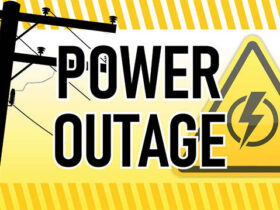Why Does Your Body Feel Weaker in Your 20s?
The memes about people in their 20s often suffering from back pain aren’t satirical. It’s true that our bodies drastically change when we leave our teens. Once we start working from 9 to 5, our back, neck, and shoulders will be more prone to strain. It doesn’t help that we’ve lost time to exercise. A sedentary lifestyle drops our energy levels, making our bodies more likely to hurt during vigorous activities.
People in their 20s joke that they’ve become seniors for those reasons. But this shouldn’t be normalized or taken lightly. Our 20s are supposed to be the prime of our adulthood. We shouldn’t experience aches and pains too often because it could indicate a health issue.
So what are causing these problems, and how do we solve them?
Article Summary
show
Body Pain in Your 20s
Aside from a bad posture and a sedentary lifestyle, the following health issues could cause frequent body pain:
Stress
Our jobs increase our stress levels, weakening our immune systems. This could lead to muscle stiffness and affect the body’s response to inflammation and infection.
Dehydration
We twenty-somethings tend to enjoy coffee more than healthy drinks. If you drink more coffee than water every day, you’ll get tired faster and feel as if your body is too heavy.
Lack of Sleep
Unfortunately, lack of sleep in your 20s no longer feels the same as in your teens. Teens can quickly recover the rest they’ve lost, as they have more free time. Adults, on the other hand, are plagued with responsibilities every day.
Scientists found that people with chronic pain often find it harder to sleep, and people with insomnia usually experience chronic pain. So, if you still think your body can handle sleep deprivation, you could be mistaken, especially if constant pain is becoming the price of your sleepless nights.
Arthritis
Contrary to popular belief, it’s not only the elderly that can contract rheumatoid arthritis. Young adults can develop it too; worse, it can be more severe for them. The inflammation from the disease usually affects the small joints, such as those in the hands and feet, and causes bony lumps.
Get rheumatoid arthritis care immediately if your hands always ache and lumps start to appear around your fingers. This illness is an autoimmune disorder, so your immune system alone won’t be enough to treat it.
Steps to Preventing Aches and Pains
A more active lifestyle and avoiding bad habits are the best ways to prevent and treat aches and pains. But it’s not easy to live healthily in your 20s, with work and stress always getting in the way. So use this guide to help yourself become stronger and more energized:
Increase your fill of fruits and vegetables every day.
The recommended intake of fruits and vegetables is six servings each day. If you barely get even one serving, start decreasing your portions of unhealthy foods and replace them with fruits and veggies. Do it gradually, or you’ll crave unhealthy food more and experience a crash.
Get a physical exam every year.
Employer-sponsored health insurance usually allows workers to get physical exams for free every year. But if you’re uninsured, find a plan that covers yearly physical exams. These health checks will help determine which exercise and diet work best for you. And, of course, getting checked regularly can detect early signs of disease.
Customize your fitness regimen.
The fitness culture on the internet tends to make us believe that we have to follow the routine of specific influencers. But that only sets us up for failure. We have to customize our fitness regimen according to our lifestyle and schedule.
For example, if you have to leave for work at 8, you’re probably better off exercising at night instead of in the morning. Waking up too early for exercise may deprive you of sleep or cause you to rush every morning. Also, pick activities based on your fitness level. Going hard right away could cause injuries.
Manage your stress levels.
Stress causes problems, from irritability to a weakened immune system. If your job makes stress inevitable, commit to a stress reduction routine. For example, read a book, walk, or do breathing exercises. Don’t let stress decide your actions because that often leads to self-destructive activities.
Managing your stress will help you manage your body better. When your mind is clear and your emotions are in check, you are in a better mood to practice healthy habits.
Don’t let your 20s feel like your 60s. Your peers may make that seem normal, but your body should still be well-energized. Take steps to be healthier and more active now.















